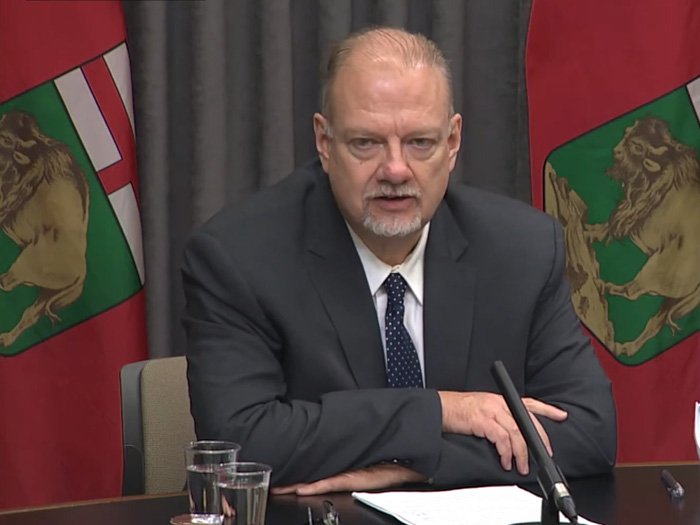Steinbach MLA and Education Minister Kelvin Goertzen announced that the Manitoba government is furthering its commitment to protecting safe and healthy learning environments by mandating a two-week remote learning period for grade 7 to 12 students and offering the same remote learning period for kindergarten to Grade 6 students.
This two-week remote learning period will begin Jan. 4, 2021, following the regularly scheduled holiday break.
“Current data indicates the risk of COVID-19 transmission in our schools remains low and we want to ensure the return to the classroom is as safe as practically possible,” said Goertzen. “By moving our grade 7 to 12 students to remote learning for the first two weeks of the new year and offering remote learning options to kindergarten to Grade 6 students, we are reducing the risk that may be posed as a result of a change in students’ close contacts during the winter break.”
Students in grades 7 to 12 will move to remote learning for a two-week period from Jan. 4 to 15. Optional remote learning will also be available to kindergarten to Grade 6 students during this period should families wish to keep their children at home following the holiday break. Regular, in-person classroom learning will be available during this period for kindergarten to Grade 6 students, as well as for any grade 7 to 12 students with special needs that must be accommodated in the school or classroom setting.
This two-week remote learning period for grades 7 to 12 will keep close to half of the student population in Manitoba at home following the winter break. Evidence suggests that older students have a higher incidence of contracting the virus, a larger number of close contacts and are more likely to transmit the virus to others as a result. Moving this group to remote learning will reduce the risk of transmission in schools while minimizing the impact on kindergarten to Grade 6 students and their families.
Manitoba school divisions have made significant enhancements to the remote learning experience in response to the COVID-19 pandemic and are well equipped for this mandated period of remote learning, the minister said. The Provincial Remote Learning Support Centre will be available to assist school divisions and educational staff during this remote learning period.
In addition to this remote learning period, Goertzen also announced that the Manitoba government is further protecting Manitoba schools by confirming the full allocation of the Safe Schools Fund.
“The pandemic situation is evolving and the Manitoba government recognizes that our schools may face extraordinary funding pressures in the 2020-21 school year,” said Goertzen. “We are pleased to confirm the full allocation of our government’s $100-million investment, along with $85.4 million in federal funding, to keep our schools healthy and safe.”
The $100-million Safe Schools Fund, established in August 2020, included $48 million in school division savings from the 2019-20 school year and additional $52 million in provincial funding. In late August, the federal government also announced COVID-related funding for education. This total pool of $185.4 million will be used to augment staffing, health and safety, learning and technology.
Staffing is a key component of the government’s COVID-19 education measures, Goertzen said. School divisions continue to recruit additional teachers, educational assistants, substitute teachers, custodial staff, bus drivers, clinicians and other critical staff. As of Oct. 31, over $9 million had been invested in additional staffing, with a total investment of over $67 million already projected to be spent by June 2021.
The confirmed allocations to support schools are:
- 2019-20 savings by school divisions – $48 million;
- per pupil allocations for school divisions and independent schools – $76 million including $44 million to specifically address staffing needs;
- Safe Restart Contingency Fund, application-based funding to support emerging needs – $39.4 million;
- Manitoba Remote Learning Support Centre – $10 million; and
- personal protective equipment – $12 million.
School divisions and independent schools will be able to apply for additional funding for needs not covered by their Safe Schools allocation through the Safe Restart Contingency Fund. The contingency fund will cover incremental expenditures to meet health and safety requirements, address extenuating public health conditions in the region/area that may entail unique cost pressures, and support innovative approaches that may support outcomes for a broader school community, region or the province as a whole.
“Our government is committed to protecting our schools and providing the resources needed to keep students learning and staff supported during these difficult times,” said Goertzen. “Manitobans can count on us to support our staff, students and their families as we navigate this unconventional school year together.”


